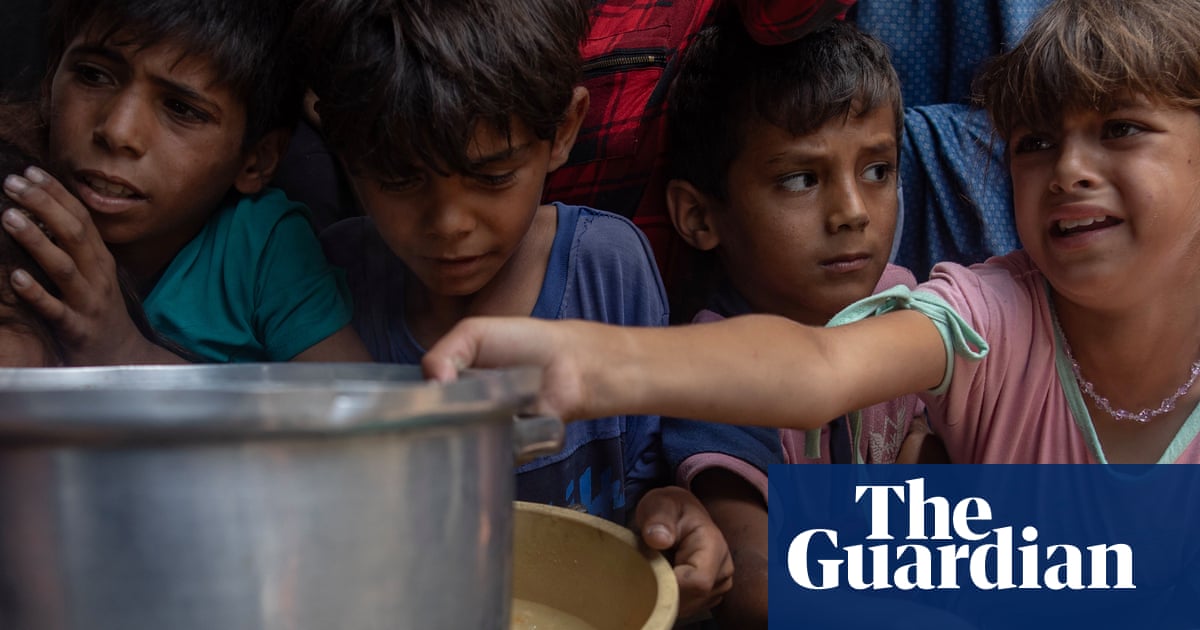Australia has joined with 22 other nations in condemningIsraelover its decision to allow limited aid into Gaza while announcing a military expansion to “take control” of the besieged strip.
The Israeli prime minister, Benjamin Netanyahu, said his troops were “making progress” on taking control ofGazaafter Israel’s military had earlier declared a central city a combat zone, killed more than 60 people in airstrikes, and a senior minister said Israel’s army would “wipe out” what remains of Palestinian Gaza.
The escalation comes as those in Gaza face a looming famine following Israel’s 11-week blockade of food, fuel and aid supplies from entering the territory.
In a statement on early Tuesday morning Australian time, 23 countries, including the UK, Canada, New Zealand and Australia, urged Israel not to politicise humanitarian aid for the starving population.
Around nine aid trucks were reportedly allowed into Gaza after the nearly three-month siege but the UN’s humanitarian chief, Tom Fletcher, warned it was a mere “drop in the ocean of what is urgently needed”.
The joint statement acknowledged “indications of a limited restart of aid” but implored Israel to uphold humanitarian principles by allowing the full resumption of aid and for aid to groups to be able to work independently and impartially.
“Food, medicines and essential supplies are exhausted. The population faces starvation. Gaza’s people must receive the aid they desperately need,” the countries said.
Netanyahu’s plan for aid distribution in Gaza was yet to be announced, but the Israel-backed and US-led Gaza Humanitarian Foundation (GHF) was expected to distribute food through militarised compounds.
“Advanced discussions”suggested heads of households would be expected to collect boxes weighing up to 20kg with several days’ worth of food and basic hygiene items like soap for their families.
There would be no provision for those too sick or weakened by famine to walk long distances across Gaza’s ruined landscape with heavy loads.
The United Nations hasalready raised concernsabout GHF’s capacity to deliver enough aid to the territory’s population.
The 23 countries raised concerns about the GHF proposal, stating existing aid groups already had the “logistical capacity, expertise and operational coverage to deliver assistance across Gaza to those who need it most”.
“The UN has raised concerns that the proposed model cannot deliver aid effectively, at the speed and scale required. It places beneficiaries and aid workers at risk, undermines the role and independence of the UN and our trusted partners, and links humanitarian aid to political and military objectives,” the joint statement read.
Sign up toMorning Mail
Our Australian morning briefing breaks down the key stories of the day, telling you what’s happening and why it matters
after newsletter promotion
“Humanitarian aid should never be politicised and Palestinian territory must not be reduced nor subjected to any demographic change.”
Australia joined the joint donor statement overnight but not aseparate statement signedby Canada, the UK and France warning Israel against expanding its military campaign in Gaza, threatening “further action”, including targeted sanctions.
“The level of human suffering in Gaza is intolerable. Yesterday’s announcement that Israel will allow a basic quantity of food into Gaza is wholly inadequate,” the three countries said.
“Israel suffered a heinous attack on October 7. We have always supported Israel’s right to defend Israelis against terrorism. But this escalation is wholly disproportionate.
“We will not stand by while the Netanyahu government pursues these egregious actions. If Israel does not cease the renewed military offensive and lift its restrictions on humanitarian aid, we will take further concrete actions in response.”
Guardian Australia contacted the office of the foreign minister, Penny Wong, for comment.
